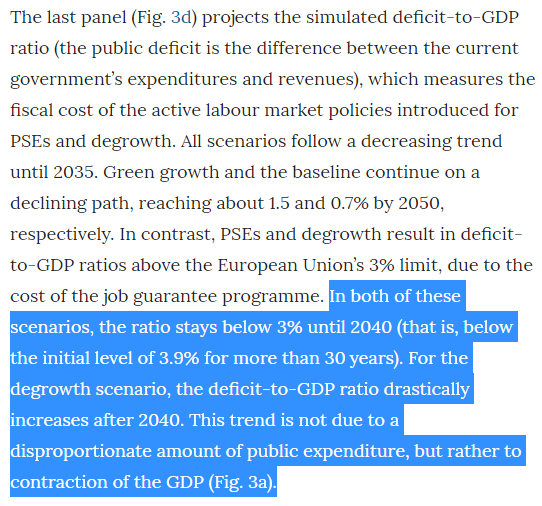I wasn& #39;t convinced by the degrowth idea before, and I& #39;m less so after reading this paper on alternative scenario& #39;s to green growth. https://twitter.com/cieplinski/status/1237079422307643393">https://twitter.com/cieplinsk...
I& #39;m not a macro- or environmental economist, so hard to judge the modelling assumptions.
It& #39;s the *public finance* results, and the authors& #39; accompanying comments, that made me scratch my head.
It& #39;s the *public finance* results, and the authors& #39; accompanying comments, that made me scratch my head.
The LT structural deficit explodes under the & #39;Degrowth& #39; scenario, to >6% of GDP (5%-point higher than the LT Green Growth outcome), and doesn& #39;t show any signs of flattening after.
The authors argue that until 2040, it doesn& #39;t exceed the EU& #39;s 3%-limit (as if this were any justification), and completely fail to comment on the trajectory post 2040.
But the focus on levels is besides the point: the comparison with the GG-scenario should be the focus here.
But the focus on levels is besides the point: the comparison with the GG-scenario should be the focus here.
They further justify the exploding deficit by stating that it& #39;s not because of the "disproportionate amount of public expenditure, but rather to contraction of the GDP".
But isn& #39;t GDP what determines what "proportionate expenditures" are?
But isn& #39;t GDP what determines what "proportionate expenditures" are?
The authors conclude with "decreasing economic growth does not necessarily entail catastrophic social consequences if employment and redistribution policies are in place."
Very curious how they plan on financing these programs in a sustainable way...
Very curious how they plan on financing these programs in a sustainable way...

 Read on Twitter
Read on Twitter



